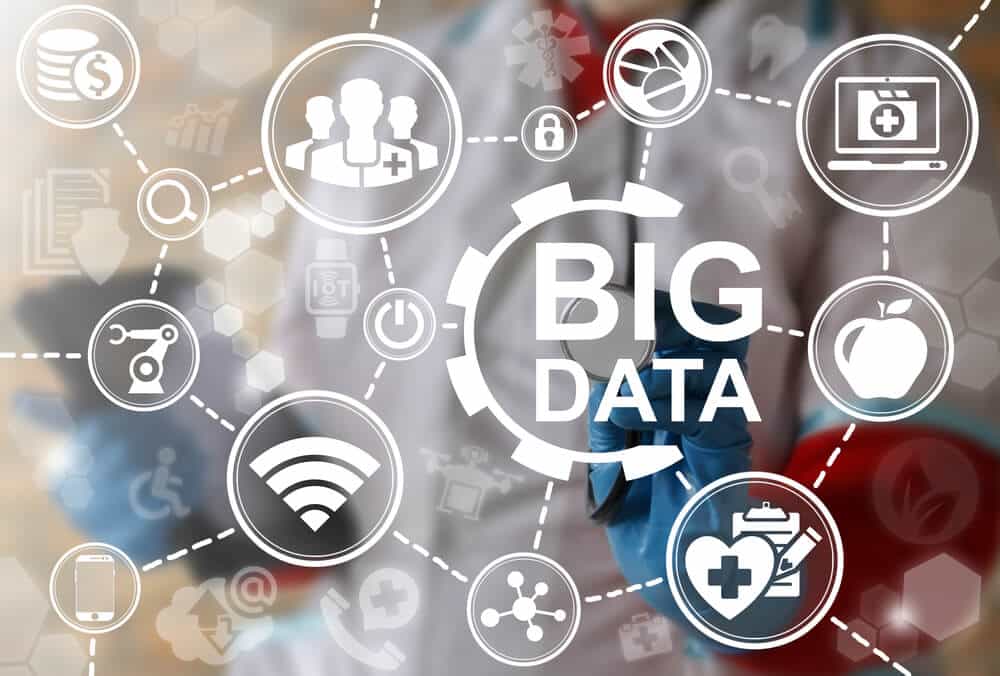The information that can promote personalized cancer medicine - can we find it in international databases?
By Harala Halevi

One of the words that may cause people to sail off into imaginary realms and lose interest is the word "big data". Everything that appeared before their eyes was a night of numbers, statistics, graphs and data that were too long and complex to understand. But, big data can change your life. And he must have already slept.
Big data, or in Hebrew natuni atek, is a term that has become commonplace when we talk about a huge volume of data.
Practically speaking, if we think about everyday examples, databases allow us to track statistics of vehicles and traffic accidents, and help navigation applications to plan the optimal route for travel according to many parameters (for example, traffic congestion, travel speed, and reports from other drivers). Data collected in various disease areas can help your doctor identify health problems more quickly and better adapt treatment to your condition.
When we combine vast amounts of data from different sources, and turn it into meaningful information that can be understood, we can identify patterns. These patterns help us better understand diseases and what causes them. They help us diagnose better and develop new drugs for those diseases.

What about big data and adjusting cancer treatment?
Personalized cancer medicine is made possible thanks to our better understanding of the human genome and the biology of the disease. At the end of the 20th century, geneticists decided to try to sequence our DNA - the human genome project, which ended only recently, utilized the most advanced technologies capable of reading segments of DNA. The ability to sequence DNA has helped researchers identify genomic changes associated with various diseases, including cancer.
Since the genomic changes were discovered, scientists could develop more targeted and advanced drugs. To do this, they relied on big data - identifying, collecting and using many and varied data, including clinical and biological information, biomarkers, genomic information and more.
One of the ways to obtain genomic data of cancer tumors is through comprehensive genomic tests. These tests contribute to a more comprehensive diagnosis of tumors and a more accurate adjustment of treatment. Beyond that, every comprehensive genomic test that is performed also contributes to the field of cancer research - in these tests, data is collected anonymously, which can be used by researchers in their effort to better understand the various types of cancer and develop new drugs.

Several companies in the world are working to promote the integration of comprehensive genomic tests as part of the routine diagnosis. They work to improve the quality of the information obtained in the tests, and the quality of the conclusions that help patients and doctors make treatment decisions. One of these companies is Foundation Medicine, an American company that manufactures and performs comprehensive genomic tests for cancer of the FoundationOne type.
This year, at the annual meeting of ASCO (American Society of Clinical Oncology - one of the world's most important meetings in the field of cancer), Foundation Medicine presented more than 12 studies that showed how genomic information can help to better understand cancer, optimize treatments and advance patient care.
These studies were based on two comprehensive databases: a genomic database, which includes samples taken from the tumors of more than 440 patients, representing over 550 types and subtypes of tumors, and an integrated genomic-clinical database, built in collaboration with Flatiron Health, which collected "real world data" of more than 74 thousand patients.
Better Cancer Care Decisions: Now and in the Future
The Integrated Clinical Genomic Database (CGDB) is changing the way we understand cancer. It connects the genomic information with clinical data of patients. This combination gives us the ability to better understand the various factors that influence treatment choices and response to it among diverse groups of patients.
Already today you can start to see how the database affects cancer treatment. For example, after collecting and analyzing data from more than 300 patients with castration-resistant prostate cancer (mCRPC), the researchers discovered promising biomarkers that could explain why patients respond less well to innovative hormone therapy than to chemotherapy.

The identification of the biomarkers in the genomic tests may influence the treatment decisions in mCRPC - by being able to predict the effectiveness and benefit of non-hormonal treatment, it will be possible to know when it is worth considering non-hormonal treatment options. Following these promising data, the study continues and in the future it will also include larger groups of patients and comparisons between the groups so that the results are stronger.
As we identify genomic changes that drive tumor development, new pathways and biomarkers in different types of tumors, we are moving towards a new approach to classifying, diagnosing and treating the disease. We practically enable personalized medicine.
The genetics of cancer, in its hereditary aspect, is still not well understood. We will be able to understand only after we better understand the role of each of the factors that influence the progression of cancer and the response to treatment. How do we do it? The more the databases contain more, more diverse and comprehensive data, the more we can continue to promote personalized medicine, and make it a reality for every person suffering from cancer.
The article is in collaboration with Roche, a representative of Foundation Medicine
